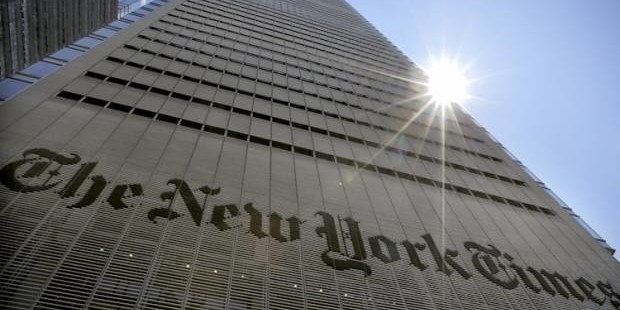
Chomsky’s right: The New York Times’ latest big lie
More misleading half-truths from a paper too cowed by power and myth to tell the truth about U.S. foreign policy
Never before have I written a column concerning nothing more than a pair of quotation marks. Then again, never until now have I seen the power of punctuation so perniciously deployed.
It is not a new trick. Very popular in hackdom during the Cold War decades. Enclose something in quotation marks and all between them is instantly de-legitimized; no argument or explanation need be made. Here, try it:
“… the Cuban ‘doctors’ sent to Angola…”
Or: “… Soviet-made ‘farm equipment’ in Portugal since its 1974 revolution…”
Well, they were doctors and it was farm equipment. In the latter category I sat in a Soviet tractor out in the Portuguese vineyards, and damn it if the camponês did not find it useful.
In the end, this kind of thing is simply passive aggression, my least favorite neurosis. No one actively lies such that one can confront and reveal. It is lying by misleading and by implication, so sending us off full of groundless conviction and prejudice.
In this case, we have the irresponsible use of inverted commas, as the Brits say, to shape national opinion on a question of vital importance. The question is Iran. And now to the supine, corrupted and corrupting organ.
You have taken a wild guess, and you are right. We have our familiar problem with our friends on Eighth Avenue, the New York Times, faithful servants of the sanctioned orthodoxy. I give these folks an “A” for clever disguise this time, and I flunk them in the professional ethics class. Simply shameful, this round of reckless chicanery.
Here is the situation.
As all know, a deal with Iran over its nuclear program is the biggest game going these days — an historic opportunity, as previously asserted in this space. Fumble this, and the Obama administration will go down as hopelessly moronic on the foreign-relations side.
You may know, too, that a round of talks between six world powers and the Iranians just hit a pothole. It is essential to understand why.
The paradox is apparent, not real. Knowing why reveals what a nation with imperial ambitions looks like when it is nearing exhaustion and would rather decline than shape up, re-imagine itself, and take a new and constructive place in the global community. Not knowing why encourages Americans to preserve their righteous self-image even as the moths of history chew holes in it.
Best, in Washington’s view, that we do not know why talks in Geneva last weekend failed.
Complex story, but we can take care of it simply. Iran wants a nuclear program, and this includes the capacity to enrich uranium. This is Iran’s right under international law. Washington and the major European powers do not want Iran to have such a program because they worry Iran will eventually build a nuclear weapon. The talks in Geneva went sour because the U.S. and the Europeans demanded that Iran surrender its right.
O.K. Here is the lead in the Times report from the City of Diplomacy:
The Iranian government’s insistence on formal recognition
of its “right” to enrich uranium emerged as a major obstacle,
diplomats said Sunday.
Two big problems. Nothing emerged as an obstacle in Geneva other than Secretary of State Kerry’s duplicity, given that his Iranian counterpart, Mohammad Javad Zarif, now charges him with misleading Iran as to demands to be made on the enrichment question. Iran has been quite clear all along: Enrichment under law will never get on the table. Zarif would have skipped the trip had he known Kerry’s plans; Kerry knew this.
Then the quotation marks. With them, the Times proposes to deprive Iran of its statutory rights so that Washington can lie to us as well as to the Iranians.
You are all set now for the corker. You search through the piece to understand the quotation marks, and you come to this, edited down so as to get to the point:

